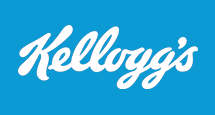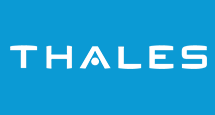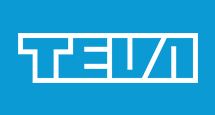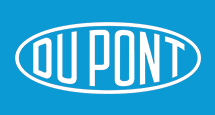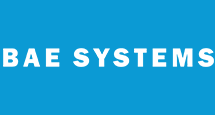Visiongain Publishes Artificial Intelligence (AI) in Drug Discovery Market Report 2022-2032
14 June 2022
Visiongain has published a new report entitled the Artificial Intelligence (AI) in Drug Discovery Market Report 2022-2032: Forecasts by Offering (AI Software, AI Services), by Technology (Deep Learning, Supervised Learning, Reinforcement Learning, Unsupervised Learning, Other), by Applications (Oncology, Infectious Diseases, Neurological Disorders, Metabolic Diseases, Cardiovascular Diseases, Other), by Type (Target Identification, Molecule Screening, Drug Design and Drug Optimisation, Preclinical and Clinical Testing) AND Regional and Leading National Market Analysis PLUS Analysis of Leading Companies AND COVID-19 Recovery Scenarios.
The global artificial intelligence (AI) in drug discovery market was valued at US$791 million in 2021 and is projected to grow at a CAGR of 30.7% during the forecast period 2022-2032.
In a Pharmacological Screen, AI Has a Stronger Prediction Power for Defining Relevant Interactions
AI makes use of the most recent developments in biology and computation to create cutting-edge drug discovery algorithms. AI has the potential to level the playing field in drug research, with to rapid increases in computing capacity and lower processing costs. In a pharmacological screen, AI has a stronger prediction power for defining relevant interactions. As a result, by carefully choosing the assay parameters in question, the risk of false positives can be decreased. Most crucially, AI has the ability to shift drug screening from the bench to a virtual lab, where results can be produced more quickly and intriguing targets can be prioritised without requiring extensive experimental input or personnel hours.
How has COVID-19 had a significant negative impact on the Artificial Intelligence (AI) in Drug Discovery Market?
The COVID-19 pandemic presented a significant challenge to the pharmaceutical and bioanalytical communities in the creation of vaccines and therapies, as well as ongoing drug development activities. Existing procedures were tested to cope with reduced personnel at facilities and increased workloads for COVID-19-related study assistance, which included preclinical testing, clinical trial initiation, bioanalysis, and interactions with regulatory bodies, all in ultra-short timelines. Creative reimagining of procedures and the removal of barriers – some of which had previously been regarded immovable – were major factors in the project's success. Pharmaceutical firms working on antiviral medicines or vaccines have to deal with pandemic-related problems and alter their strategies in order to continue enrolling patients in existing clinical studies and developing new treatments and cures. The remainder of this essay focuses on bioanalysis and drug development issues and lessons learned.
How this Report Will Benefit you?
Visiongain’s 461-page report provides 270 tables and 264 charts/graphs. Our new study is suitable for anyone requiring commercial, in-depth analyses for the global artificial intelligence (AI) in drug discovery market, along with detailed segment analysis in the market. Our new study will help you evaluate the overall global and regional market for Artificial Intelligence (AI) in Drug Discovery. Get the financial analysis of the overall market and different segments including type, technology, application, offering and capture higher market share. We believe that high opportunity remains in this fast-growing artificial intelligence (AI) in drug discovery market. See how to use the existing and upcoming opportunities in this market to gain revenue benefits in the near future. Moreover, the report would help you to improve your strategic decision-making, allowing you to frame growth strategies, reinforce the analysis of other market players, and maximise the productivity of the company.
What are the current market drivers?
AI Utilizes the Latest Advances in Biology and Computing to Develop State-of-the-Art Algorithms for Drug Discovery
With the introduction of artificial intelligence (AI) and machine learning, the pharmaceutical business is undergoing a significant transformation. While many see this new technology as a potential threat, it could actually be the solution to our persistent prescription shortages. Indeed, AI has already proven to be useful in several aspects of drug discovery and development, from assisting scientists in finding new potential treatments to forecasting which pharmaceuticals will fail clinical trials. There's no doubt that these technologies will have a huge impact on the future of medicine as more pharma companies adopt them.
Thanks to AI, the Cost and Timelines of Developing a New Treatment Will Be Rewritten
The cost of discovering a new medicine is estimated to be in the billions of dollars. A huge percentage of the money invested on the nine out of ten proposed new therapy discoveries that fail somewhere between clinical trial phase I and regulatory approval goes down the drain. Surprisingly, few in the industry doubt the value of doing things differently. Many prominent pharma companies believe that the answer is within grasp when assisted by cutting-edge technology. Using the supercomputer IBM Watson, Pfizer uses machine learning (ML) or deep learning (DL) and breakthroughs to develop immuno-oncology medications.
Where are the market opportunities?
A New Wave of Drug Discovery is Setting the Ideal for the World
Small-molecule drug discovery can benefit from AI in four ways: new biology, improved or original chemistry, higher success rates, and faster and cheaper discovery processes. Many issues and limits in traditional R&D can be addressed with this technique. Each tool provides drug research teams with new insights and, in some circumstances, can completely transform long-standing operations. Understanding and distinguishing between use cases is crucial because these technologies are applicable to a number of discovery scenarios and biological targets.
AI Has Received a Lot of Attention in the Pharmaceutical Business for Medication Discovery and Development
Within the pharmaceutical industry, there has been considerable focus on AI for drug discovery and development. The "AI for Drug Discovery" business includes research organisations, AI innovators both early-stage and well-funded biotech companies, and multinational pharma giants. Though artificial intelligence (AI) has only recently gained traction in the industry, computational methods to drug development particularly in chemistry and biology have a long history that predates electronic computing.
Competitive Landscape
The major players operating in the artificial intelligence (AI) in drug discovery market are Atomwise, Benevolent AI, Berg Health, Bioage, Biosymetrics, Cloud Pharmaceuticals, Cyclica, Deep Genomics, DeepMind, Envisagenics, Euretos, Exscientia, GNS Healthcare, IBM Corporation, Insilico Medicine. These major players operating in this market have adopted various strategies comprising M&A, investment in R&D, collaborations, partnerships, regional business expansion, and new product launch.
Notes for Editors
If you are interested in a more detailed overview of this report, please send an e-mail to contactus@visiongain.com or call +44 (0) 207 336 6100.
About Visiongain
Visiongain is one of the fastest-growing and most innovative independent media companies in Europe. Based in London, UK, Visiongain produces a host of business-to-business reports focusing on the automotive, aviation, chemicals, cyber, defence, energy, food & drink, materials, packaging, pharmaceutical and utilities sectors.
Visiongain publishes reports produced by analysts who are qualified experts in their field. Visiongain has firmly established itself as the first port of call for the business professional who needs independent, high-quality, original material to rely and depend on.
